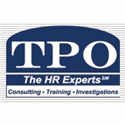Traditionally, organizations have tried to minimize the cost of support services internally as those are cost centers rather than profit centers. The result of these efforts is that employees and, sometimes, owners or general managers find themselves faced with doing work in an area where they have little or no expertise. Human Resources is one of those areas.
Organizations may have the human resources function done by an office manager, accounting manager, executive assistant, operations manager or the CEO. While this practice is more common in smaller companies, even larger companies may have all or parts of these included in the duties of many individuals. This practice allows employers to minimize the number of individuals who are not delivering direct service to customers or direct impact to the product being offered.
Over the time our country, state and area have been experiencing financial challenges, these individuals have had to take on more and more responsibilities which squeezes their time on any single area creating more opportunity to make potentially costly errors. Further complicating this in the area of human resources is the fact that many new legal requirements and changes have occurred over the past 18 – 24 months and busy professionals have little time to research, integrate and update in order to comply. Even large organizations have been challenged in this area.
Here are some tips on how you can manage all of that:
§ Understand your core business. You should have a strategic plan that focuses on exactly what you do best and find a way to get others to do the ones you don’t do well. For example, if you have facilities you must manage; consider outsourcing those tasks to a company that manages property for owners.
§ Match talent and interests of your employees. If you must keep a non-core function internal, then try to find the person or group where there is a natural affinity. A person who enjoys and has interest in a non-traditional area is more likely to actively find support systems and information to make the best decisions in that area.
§ Check to see what support systems you may already be paying for. In support areas, organizations frequently find that they are already paying for some support systems without being aware of it and are not taking advantage. For example, many CPA firms who do an employer’s tax filing may also offer some types of basic audits on cost savings, fiduciary review for your retirement plan, etc. for free or very low cost.
§ Strategically partner with companies who provide excellence in the areas you need to outsource. Many savvy organizations have found that outsourcing human resources either fully or for additional resources is much less expensive that hiring additional staff or paying high legal costs when something goes awry. TPO has developed very flexible systems to allow employers to get the level of outsourcing that benefits the organization for an excellent price.
§ Invest in training and technical support for those who manage such areas. Scrimping on the necessary training and support materials for individuals who are already stretched thin and dealing with programs or systems that are not their primary strength is false economy. These can make the difference in making the choice of doing the work internally smart vs. imprudent.
As organizations experience more affluent times again, these items do not become irrelevant. By putting these into practice during times when it is necessary, organizations can leverage growth in the areas of the business that will make them more profitable or meet the mission better.
At TPO, we are glad to partner with you on developing this kind of strategy.
TPO is an award-winning firm established in 1991 made up of a group of highly experienced, nationally certified HR experts and trainers. TPO is licensed by the State of California (PI-25638) to provide investigative services. For more information, please contact us at 800-277-8448 or visit our web site www.tpohr.com.
Contents
TPO is an award-winning firm established in 1991 made up of a group of highly experienced, nationally certified HR experts and trainers. TPO is licensed by the State of California (PI-25638) to provide investigative services. For more information, please contact us at 800-277-8448 or visit our web site www.tpohr.com.
Contents
©
2011 TPO Human Resource Management. No part of this article may be reproduced, excerpted or redistributed in any form without express written permission from TPO Human Resource Management.
No comments:
Post a Comment